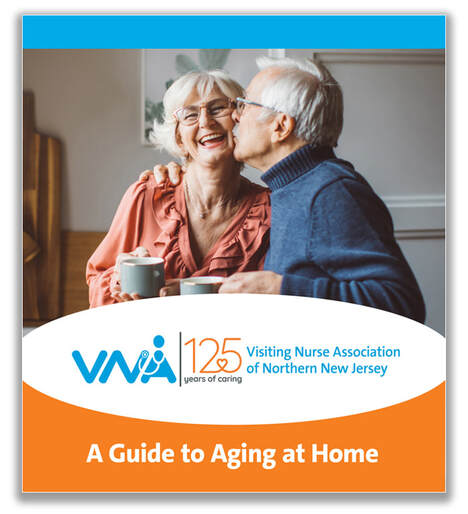Plan for Aging in Place...
|
View and download your copy here
A Guide to Aging at Home |
More than 77% of Americans over age 50 said they would prefer to age in place in their own homes, according to an AARP survey. Other studies have found that over 70% of the population will require some home care services between age 65 and the end of their lives. Furthermore, the need for assistance steadily increases with age, with loved ones inevitably taking on some caregiving responsibilities. Here are steps to take now to ensure that your needs will be met while also minimizing the burden on your family:
Factor in the cost of home care when saving for retirement. Nearly 65% of all Americans retire with inadequate savings to fund essential needs until the end of their lives. When saving for retirement, don’t overlook the cost of home care services. Discuss your preferences with loved ones and plan together. If you want to avoid a nursing home, make your preference to age in place known to family members. Ask their help in devising a feasible plan that may include part-time, full-time or live-in home care and/or combining residences with an adult son or daughter, a sibling or other relative. |
Choose long-term care insurance with adequate home care provisions.
If you purchase long-term care insurance, select a policy that includes strong home care benefits in addition to coverage for custodial nursing home care.
If you purchase long-term care insurance, select a policy that includes strong home care benefits in addition to coverage for custodial nursing home care.
|
Keep abreast of resources and providers available in your area.
Familiarize yourself with providers in your area and know where to turn with confidence. In addition to state licensure, a provider should be accredited by the national Community Health Accreditation Program (CHAP). Full-service providers that offer comprehensive home health care, practical assistance and hospice for the final phase of life can seamlessly accommodate evolving needs. Provider reviews are available online at numerous sites including medicare.gov which reports results of its own Home Care Compare quality and satisfaction surveys. Know when it’s time to ask for assistance. Home care services can extend your ability to live independently. If you’re struggling with any essential routine tasks, ask for help. Also, most people – including those initially reluctant to receive assistance - enjoy the companionship and encouragement that certified home health aides and other home care professionals provide. |
For more information and a plan to help you in your journey, view and download VNA's A Guide to Aging at Home.
You may be eligible for services under Medicare, Medicaid, private insurance plans or free and low cost, grant-funded programs.
If you have immediate needs please reach out to the VNA for a free, no obligation consultation:
vnannj.org/contact or 1-800-WE VISIT (1-800-938-4748)
If you have immediate needs please reach out to the VNA for a free, no obligation consultation:
vnannj.org/contact or 1-800-WE VISIT (1-800-938-4748)

















